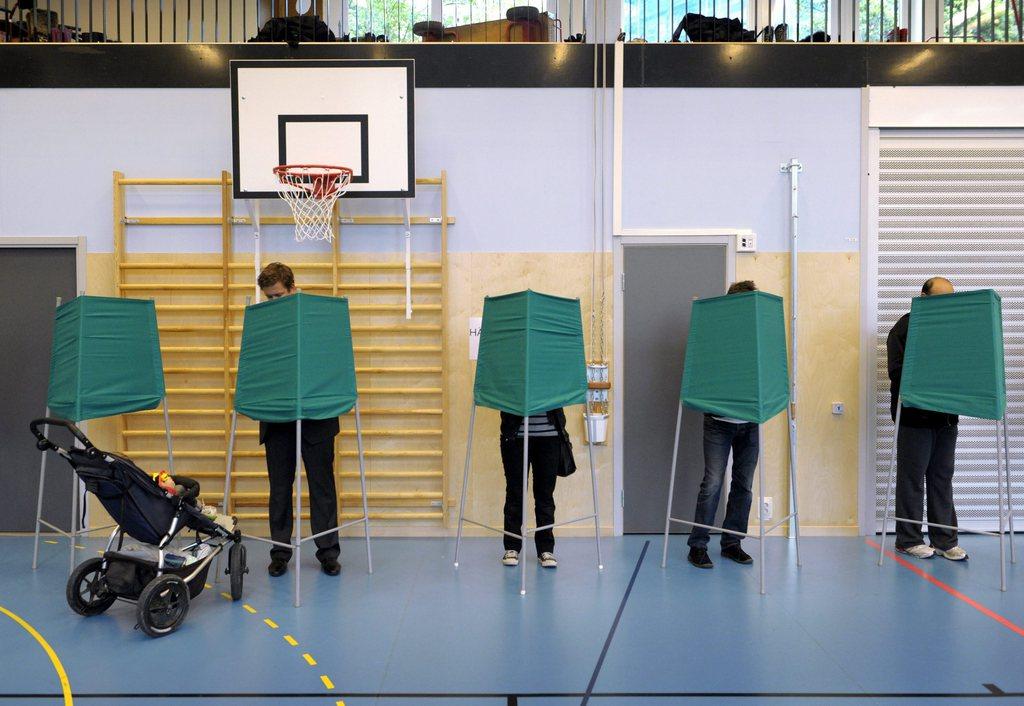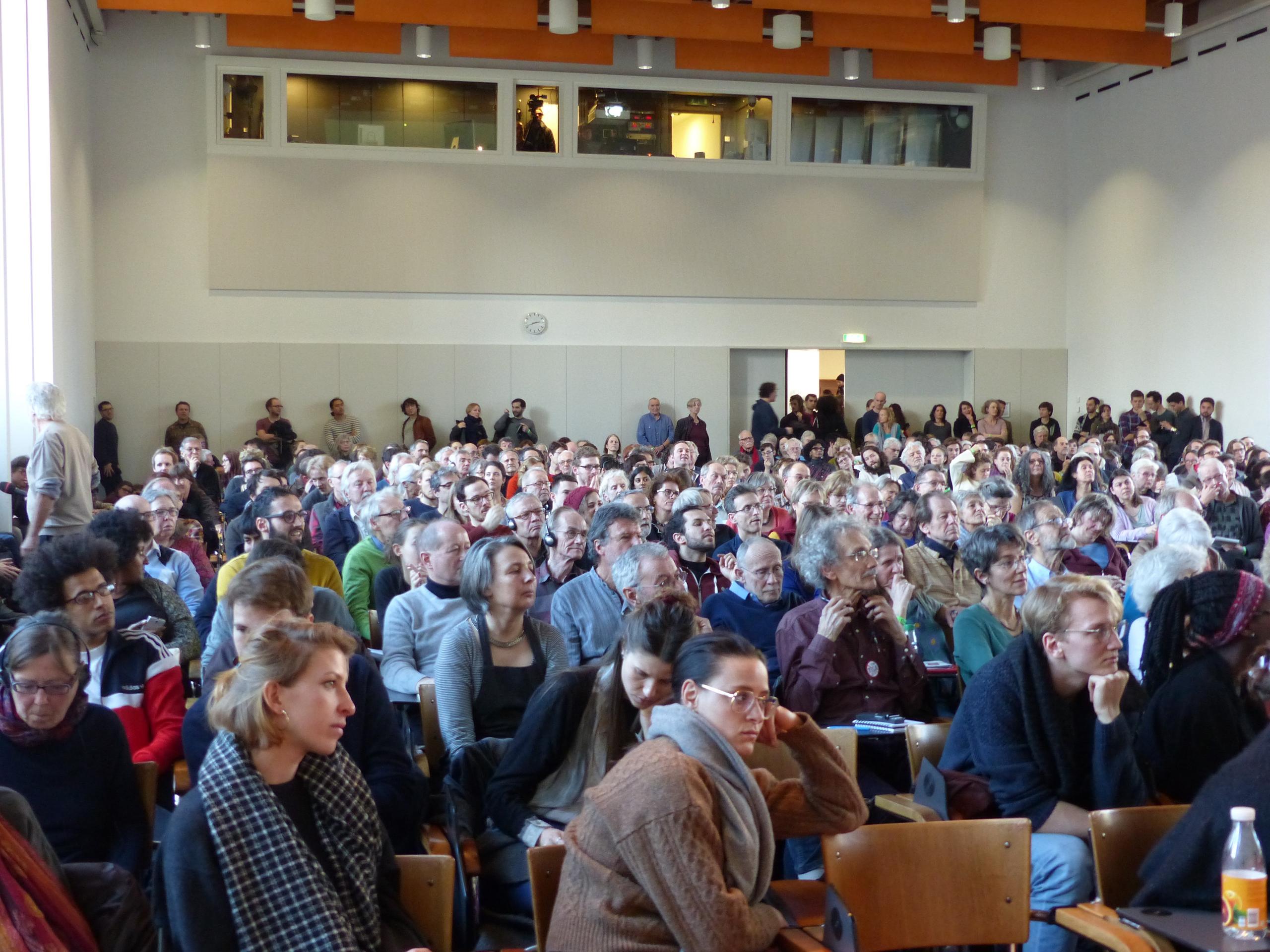Are political parties ready for the big race?

Switzerland’s political parties are gearing up for parliamentary elections in October 2019. The first trends are taking shape. But compared with other countries, stability dominates in Switzerland. Will there be no surprises this time?
So far, no major shifts are on the horizon. The leftwing Green Party is winning back what they lost in 2015. The conservative right Swiss People’s Party is falling back after being the big winner in the last election.
It’s highly possible the parties will keep their ranking in 2019, and that changes in the proportion of votes will all be smaller than 1.5 percentage points.
Here are some details on the current form of the parties:
The Radical Party
The centre-right Radicals are the only party to have won an additional 35 seats in cantonal elections since 2015. With these, it managed to stop the exodus of voters to the People’s Party. Petra Gössi, the new party president, has been buoyed by her victories.
Its overall record in referendums has been exemplary. Switzerland is almost as liberally minded as the Radical Party. The only prominent failure at the ballot box was corporate tax reform.
In European policy, the Radicals remain the uncontested number one party. But much will depend on getting a breakthrough in talks on the framework agreement with the European Union.
The biggest risk for the party is its members’ occasional lack of sensitivity towards the problems of financing policies. The announced departure of Economics Minister Johann Schneider-Ammann offers a good opportunity for the party to raise its profile.
In short, the prospects for gains in both chambers of parliament are good.
About the author
Claude Longchamp is a senior political expert and one of Switzerland’s most experienced and highly-regarded political scientists and analysts.
He founded the polling and research institute GfS BernExternal link, which he headed until his retirement. Longchamp has analysed and commented on votes and elections on SRF public Swiss television for 30 years.
Longchamp also runs two German-language blogs: ZoonpoliticonExternal link on political issues and Stadtwanderer External linkwith contributions about historical topics.
This text is part of #DearDemocracy, a platform on direct democracy issues, by swissinfo.ch. Contributors, including outside authors frequently share their views. The opinions expressed here are not necessarily those of swissinfo.ch.
The Greens
The leftwing Green Party has managed to shake off its losing streak. In cantonal parliamentary elections, it won 17 seats in French-speaking Switzerland.
The Greens have streamlined their party leadership and appointed new talent. The party has also sharpened its policy profile.
Its people’s initiative for a withdrawal from nuclear power was almost adopted. Thanks to a hot summer in 2018, it also introduced a symbolic glacier-initiative into the debate on carbon dioxide.
In general, some gains are to be expected in the next lower house of parliament. Despite continued weakness in the upper house, they are also boldly eyeing their chances of getting their first seat on the seven-member Swiss government.
Social Democratic Party
The leftwing Social Democratic Party has long been a force in big cities. It has recently been able to increase its support in mid-sized cities and urban cantons. The result is an additional 16 seats in cantonal parliaments.
The main factor behind its new impetus is its concept to mobilise core supporters by rejecting any reductions in welfare. In addition, it orchestrated a “Women’s Year” campaign calling for equal pay for equal work.
Its biggest referendum success since 2015 was the rejection of corporate tax reform. Its most painful defeat was the rejection of its pension reform. New opportunities are afforded by its initiative for transparency in party financing, which is opposed by right-wing parties.
Gains in the next election to the House of Representatives are conceivable, as are losses through resignations in the other parliamentary chamber, the Senate.
Swiss People’s Party
Oskar Freysinger suffered a spectacular defeat when he stood for re-election in the Valais cantonal government. This robbed the party of its leader in French-speaking Switzerland.
Under its new president, Albert Rösti, the People’s Party has lost some support. Twelve seats were forfeited in cantonal elections. What is more, it sustained some uncharacteristic defeats in initiatives and referendums. And its constant campaigning on the subject of immigration is becoming stale.
At present, losses look likely in the elections. But the People’s Party has always known how to increase its support in election years. The referendum on its sovereignty initiative gives it a platform from which to portray itself as the defender of democracy and sovereignty.
Christian Democratic Party
Gerhard Pfister had a remarkable start as the new president of the centrist Christian Democrats. But successes at cantonal elections were absent, almost across the board. Twenty-eight seats were lost. This lends weight to doubts that there is potential for the conservative wave they are aiming for.
The Christian Democrats did better in nationwide votes, where it followed a consistently centrist line.
With its initiative against the marriage tax, it won a majority by a hair’s breadth. Its own initiative on health has positioned it well in time for the 2019 election campaign.
The Christian Democratic Party’s biggest trump card is the resignation of transport minister Doris Leuthard. It is conceivable that the party will suffer some more losses in the House of Representatives and keep its ground in the Senate.
Small parties
There is also a shift in direction for the centrist Liberal Green Party. Under new leadership, it was able to stabilise support in cantonal elections. The same is not true of the centre-right Conservative Democratic Party, which continued to lose voters, albeit at a slower pace. The loss of its seat in government weighs heavily.
Summary:
Boring? Not necessarily!
The future of Europe policy, pensions and corporate tax reform, health costs and climate change offer enough big issues to create upheaval in the party landscape.
Translated from German by Billi Bierling/urs

In compliance with the JTI standards
More: SWI swissinfo.ch certified by the Journalism Trust Initiative




You can find an overview of ongoing debates with our journalists here . Please join us!
If you want to start a conversation about a topic raised in this article or want to report factual errors, email us at english@swissinfo.ch.